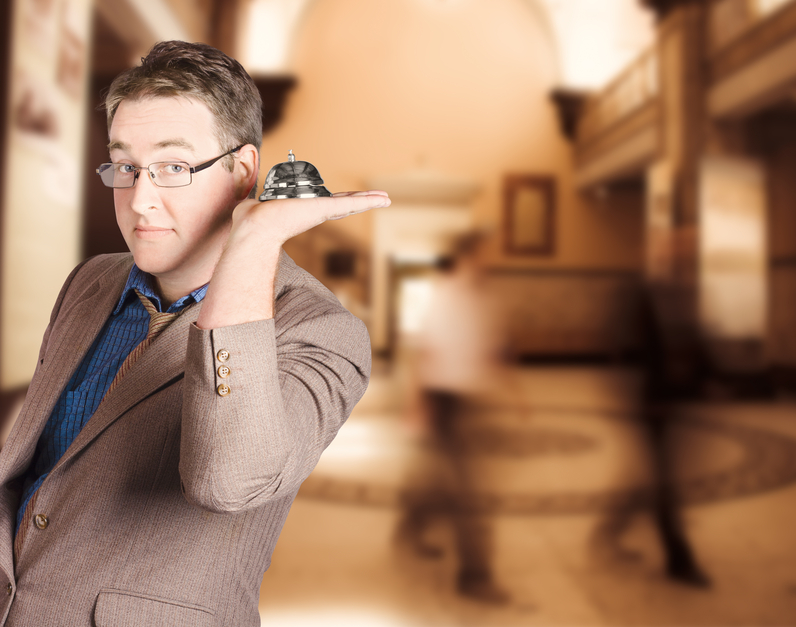Marketing in a slow economy for any product or service can be a challenge. Even more challenging is marketing a hotel, which is both a product and a service. Whether a hotel is part of a recognisable chain or one-of-a-kind boutique hotel, marketing is vitally important. Many hotel marketers may find themselves trapped in a marketing rut with few measurable results.
Below are 6 common marketing mistakes often found in the hotel industry.
1. Sole focus on the traditional
An `old school’ Mad Men type advertiser may cling to traditional marketing techniques and have a harder time embracing the new age of advertising. This isn’t to say traditional marketing isn’t necessary, of course. TV, radio and print ads are still relevant with many clients interested in booking hotel space. However, you’ll need to have a strong grasp on who your clientele are and where they are coming from. While people 65 and older tend to appreciate old-school ad campaigns, people not yet retired, will be open and available to the various types of internet as well as traditional marketing.
2. Little or no budget for online marketing
Most hotel marketers recognise the need for internet marketing but fail to include the cost in their budget. Good online marketing, like good TV, radio and print marketing, doesn’t come cheap. If it was simply a matter of creating a Facebook page and writing a status now and then, anyone could do it. But there is so much more to proper and strategic digital marketing. Proper online marketing requires constant attention to the many facets and tools that make up the world wide web. Your website is your brochure and, often, only chance at capturing potential guests. Not only do you need to budget for building the actual website, but also for the various ways you will need to advertise it; From generating visibility on the search engines, to participating in all the Social platforms that are available.
3. Misusing internet marketing
Recognising the need for and allocating budget for online marketing is fantastic but it still must be used correctly. `SEO’ (Search Engine Optimization) or, better understood as, online marketing is a necessary evil for increasing your site’s visibility but it must be done right and by a company familiar with the hospitality space. Beyond that, you will need to allocate a budget for Social platform advertising, Trip Advisor listings and many other PR tactics that pertain to digital marketing. Having a budget plan for each of these tactics will prove crucial to the success of your online presence.
4. Trendy fads – when to use and when to lose
The internet, like fashion, is subject to trendy fads, especially in social media. For instance, there are between 3 and 5 popular social media sites in heavy use at any given time. Remember MySpace? Of course you don’t remember MySpace. If you do, it’s most likely a vague memory of a social website that might as well have been used in another century rather than last decade. Your Digital Marketing company, if it’s a good one, will help a great deal with the process of choosing which social sites to have a presence on and which ones to drop or ignore. Right now, August 2013, Google+ is the single most powerful social network out there. Having an understanding and respect for the current trends or fads will make a big difference in your ROI at the end of the year.
5. Forgetting your brand
Many hoteliers, in an effort to reach the masses, forget the brand. For instance, a national or international hotel may look different in St. Petersburg, Florida as it does in Pigeon Forge, Tennessee. While consideration for building style and decor should be given to surroundings and local flair, certain parts of branding must remain consistent. Names and signs should be consistent and recognisable regardless of city or country the hotel is in. Service should be consistent as well whether the hotel is in Miami, Florida or Waco, Texas. Consistent good service positively reinforces the brand.
6. Skipping guest interaction
Today’s traveling consumer, like much of your marketing, is online. Again, unless over the age of 65 and retired, you can count on your guests using the internet whether it’s Tweeting, posting vacation pictures on Instagram or updating location status on Facebook. This type of consumer enjoys electronic interaction and your hotel should be set up for engaging in that interaction. Whether it’s for booking purposes, leaving a review or looking for suggestions, your website should be easy to navigate and welcoming to this type of consumer. Email confirmations give the consumer a handy way to save documentation. Emailing a guest after a stay to say thank you opens a line of communication and keeps your brand in sight. There are so many ways to interact with your guests on top of the expected good service and friendly attitude that if used correctly can exponentially widen your brand’s circle of influence in the market.
By avoiding these common mistakes, you’ll be well on your way to improving your online and offline marketing strategy, which means more guests booking with your hotel.
Enjoyed this article? You may like to read Hotels and Influencer Marketing in 2020.
